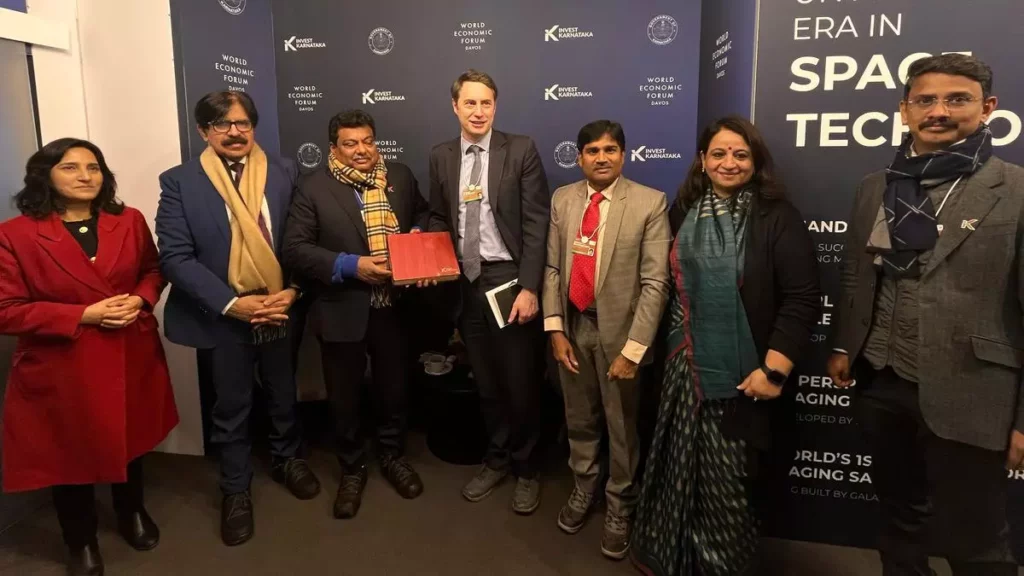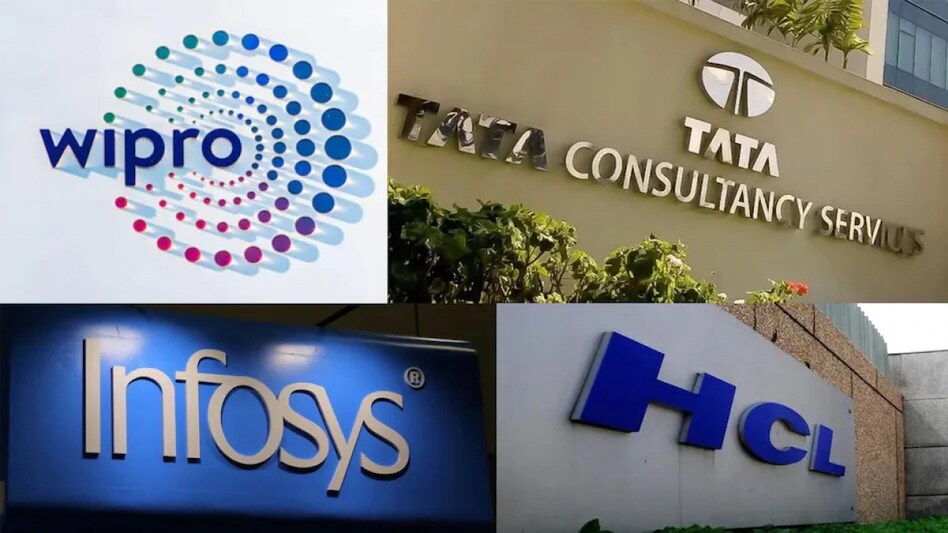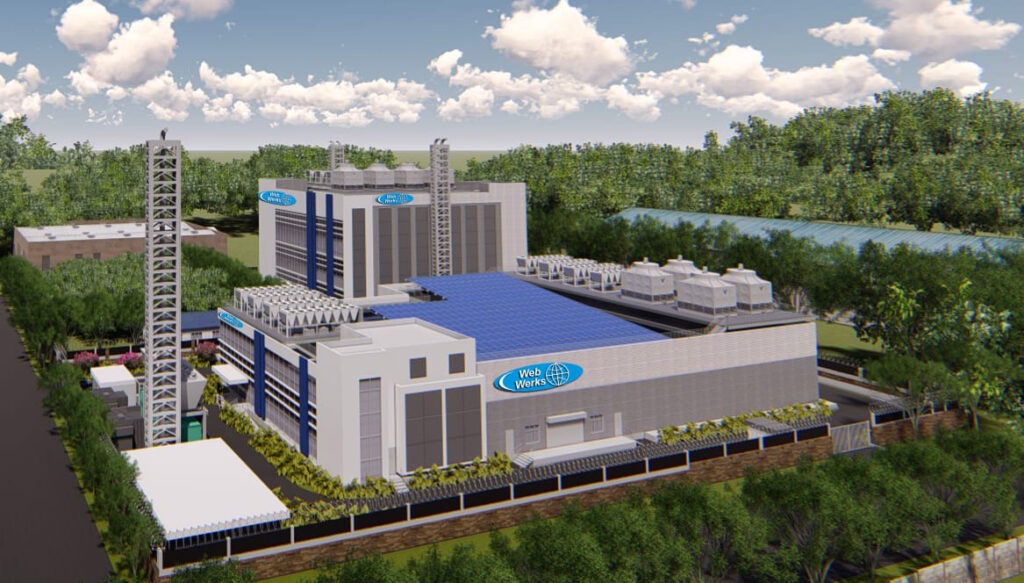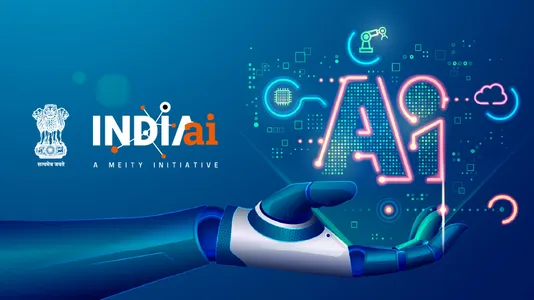
India played a pivotal role in the third industrial revolution, a period marked by globalisation and the digital transformation of manufacturing through the IT industry. Leading companies like Tata Consultancy Services, Infosys, and Wipro were instrumental in driving this progress globally.
Today, we are amidst an even more rapid technological evolution—the Fourth Industrial Revolution (4IR). This era is characterised by the rise of new sectors, particularly artificial intelligence (AI). By fostering robust and effective knowledge exchange between governments and industries, India is poised to support technological advancements and the integration of 4IR technologies into all sectors of the Economy.

In light of this, states like Karnataka are accelerating India’s massive adoption of AI and other emerging technologies to transform the nation. Karnataka’s IT sector employs over 1.5 million professionals, providing a deep pool of skilled talent for AI startups. The city’s concentration of tech talent, particularly in data science, machine learning, and software engineering, is a key factor in its success as an AI hub.

Moreover, Bengaluru’s academic and research institutions are leaders in AI innovation, conducting cutting-edge research, collaborating with industry partners, and producing highly skilled AI talent. These institutions file over 400 patents annually, showcasing their significant contributions to AI research and innovation. IISc alone has filed over 500 patents in the last five years, many of which are related to AI and machine learning.

When it comes to Global Capability Centres (GCCs), Bengaluru is the most sought-after destination, with over 31% of GCCs located there. With over 15,000 startups and a ranking of 8th globally in the Startup Ecosystem Index 2023, Bengaluru continues to lead the way in technological advancements.


WEF 2024: Karnataka signs MoUs worth ₹22,000 crore with 7 companies
INTERNATIONAL COLLABORATION
Despite the enthusiasm surrounding the rapid development and adoption of AI, it has also faced scrutiny and criticism from governments and regulators worldwide. Recognizing this, the government of Karnataka is taking a leadership role in shaping AI governance through the Global Centre for Artificial Intelligence in partnership with the World Economic Forum. This initiative aims to promote inclusive AI development, enhance technology governance, and drive responsible digital transformation in both the public and private sectors.
Signed on February 29, the Letter of Intent integrates Karnataka into the WEF’s Center for the Fourth Industrial Revolution (C4IR) Network, which focuses on inclusive technology governance and responsible digital transformation.
Shri Priyank Kharge, Karnataka’s IT-BT minister, emphasised that the new AI centre will be WEF’s only dedicated AI hub in India, to position Karnataka as a leading global AI hub.
The centre aims to foster industry-academia networks, facilitate technological trend exchange, encourage research collaboration, and tackle global AI challenges.
In addition to promoting research and development, the centre will support and nurture AI startups in Karnataka by providing a globally connected platform for collaboration and networking. Minister Kharge reaffirmed the state’s commitment to AI as a key driver for digital economy growth, investments, and job creation, noting Bengaluru’s recognition as one of the top five global cities for AI.
BENGALURU’S RISE AS A GLOBAL AI & STARTUPS HUB
Giving momentum to Karnataka’s position as the country’s AI leader is Bengaluru, India’s Silicon Valley, which has emerged as a global hub for artificial intelligence (AI) innovation. The city’s thriving tech ecosystem, top engineering talent, and an increasing number of AI startups and research centres are driving its rise as a leading destination for cutting-edge AI development. The global market for AI-based tools and applications is expected to reach $190 billion by 2025, growing at a CAGR of 33.2% from 2020 to 2025. Bengaluru’s AI startups and research institutions are well-positioned to capture a significant share of this market, given their expertise and track record of success.

Bengaluru’s AI developers and researchers are at the forefront of creating advanced AI solutions for sectors such as healthcare, education, and smart cities. As these solutions gain wider adoption, they have the potential to drive substantial social and economic benefits for the city and the country as a whole.
The city’s dynamic startup ecosystem has played a crucial role in its emergence as an AI hub. Bengaluru’s entrepreneurial spirit, coupled with its strong IT sector presence and significant exports, has created fertile ground for AI innovation.
Bengaluru is home to over 2,000 active startups, more than any other major Indian city, including Mumbai and Delhi. This vibrant startup community fosters collaboration, knowledge sharing, and healthy competition, propelling AI entrepreneurship and innovation forward. The city’s IT exports reached an impressive $45 billion in the 2020-21 fiscal year, accounting for 38% of India’s total IT exports. This robust export performance highlights Bengaluru’s global competitiveness and its capability to deliver cutting- edge AI solutions to international markets.
Silicon city’s IT sector employs over 1.5 million professionals, providing a deep pool of skilled talent for AI startups to draw from. The city’s concentration of tech talent, especially in fields like data science, machine learning, and software engineering, is a key factor in its success as an AI hub.
The presence of major multinational corporations, such as IBM, Microsoft, and Google, which have established AI research centres in Bengaluru, has further strengthened the city’s AI ecosystem. These companies collaborate with startups, universities, and government agencies on AI projects, fostering knowledge transfer and innovation.
The startup ecosystem in the city benefits from a supportive government policy framework, including initiatives like the Karnataka Startup Policy, which offers funding, mentorship, and incubation support to AI startups. This policy support has helped create an enabling environment for AI entrepreneurship to thrive in the city.
Bengaluru’s academic and research institutions are at the forefront of AI innovation, providing a strong foundation for the city’s development as an AI hub. These institutions conduct cutting-edge research, collaborate with industry partners, and produce highly skilled AI talent.
Together, these institutions file over 400 patents annually, showcasing their significant contributions to AI research and innovation. The Indian Institute of Science (IISc) alone has filed over 500 patents in the last five years, many of which are related to AI and machine learning.
KARNATAKA: LEADING INDIA’S ELECTRONICS GROWTH
Karnataka emerges as India’s electronics hub, boasting the highest concentration of innovative companies nationwide (46%). It commands 10% of India’s industrial output and ranks third in electronic exports, totaling USD 4.52 billion. Decades of IT and electronics sector evolution have solidified Karnataka’s reputation as India’s epicentre for innovation, R&D, and manufacturing.
![]()
Pioneering India’s electronics ecosystem, Karnataka focuses on sustaining and advancing its leadership. Cutting- edge R&D by giants like Texas Instruments, Intel, and GE thrives here, with GE’s second-largest global R&D centre and Intel’s largest outside the USA. The state attracts leading names in automobile, medical devices, aerospace, defence, and consumer electronics manufacturing.
The 2017 Karnataka ESDM Policy, bolstered by incentives and subsidies, aims to enhance domestic value addition. Recent initiatives, like the Special Incentives Scheme (2020), aim to attract Tier 1 manufacturers and OEMs, optimising Karnataka’s position in the electronics value chain.
Karnataka pioneers CoEs in aerospace, cybersecurity, AI, IoT, and more, supporting startups and driving industry innovation. Future strategies emphasise talent development for specialised electronics and semiconductor manufacturing, ensuring Karnataka remains a global electronics powerhouse.
KARNATAKA LEADS INNOVATION WITH GLOBAL COMPATIBILITY CENTRES (GCCS)
Bengaluru, often dubbed India’s Silicon Valley, stands as the nucleus for over 400 Global Compatibility Centres (GCCs), pivotal in driving India’s economic landscape. Karnataka, hosting 25% of the nation’s 1,630 operational GCCs, employs 1.3 million professionals and contributes approximately $33.8 billion to India’s GDP, marking a significant 1%.

Source: Hexaview
Darshan H.V., Director of Electronics, IT/BT, and Managing Director of the Karnataka Innovation and Technology Society, underscored Karnataka’s role in GCC proliferation. He outlined plans for decentralisation, expanding GCC hubs to Tier-II cities like Mysuru, Mangaluru, Kalaburagi, and Tumkuru. Already, 45 companies have established bases in these cities, bolstered by Karnataka’s Digital Economy Vision.
Scheduled for August 2024, the upcoming GCC policy aims to amplify innovation, infrastructure, and tech sector investments statewide. By prioritising growth beyond Bengaluru, the policy promises equitable development throughout Karnataka.
As Karnataka prepares to unveil its visionary GCC policy, stakeholders anticipate a transformative surge in innovation and economic prosperity, paving a promising path forward.
KARNATAKA: A HUB FOR CHIP DESIGN AND INVESTMENT
With over 85 fabless chip design houses and 400+ R&D centres, Karnataka stands out in the chip design landscape. The state hosts major R&D centres for Texas Instruments, GE, Intel, Samsung, Siemens, Qualcomm, Applied Materials, Lam Research, and Micron Technology. Notably, GE’s second-largest R&D centre and Intel’s largest outside the USA are located here. In 2018, Karnataka partnered with IESA to establish a Semiconductor Fabless CoE, offering Indian fabless semiconductor companies R&D infrastructure like EDA tools, design IPs, and foundry access for product prototype development.
To further its strengths in chip design and semiconductor manufacturing, Karnataka is enhancing its policy framework, infrastructure, and skill development. The state plans to update its ESDM policy to better meet the needs of the semiconductor and electronics industry through stakeholder consultations. Infrastructure projects include the development of four Electronics Manufacturing Clusters in Dharwad, Mysuru, Bengaluru Rural, and Tumakuru. Additionally, new Centers of Excellence (CoEs) are being planned to drive innovation.
KARNATAKA IT POLICY 2020-2025
The Karnataka IT Policy 2020-2025 aims to position the state’s IT industry as a key driver, targeting a 30% contribution to India’s trillion-dollar digital economy goal. Central to this strategy is a robust framework encompassing infrastructure development, talent enhancement, innovation promotion, and global competitiveness.
The policy also promotes emerging technologies through Centers of Excellence and supports startups with financial incentives and mentorship. Internationally, Karnataka seeks alliances with global tech hubs, leveraging marketing efforts to attract investments. Simplified regulations and tax exemptions further incentivise IT companies to establish and expand operations in the state.
Progress towards the 30% target is monitored via established Key Performance Indicators (KPIs), tracking infrastructure advancements, talent development, and economic impact. Regular evaluations ensure strategy effectiveness, with stakeholder feedback shaping policy refinements.
The Karnataka IT Policy 2020-2025 offers a comprehensive roadmap for enhancing the state’s IT sector, poised to significantly contribute to India’s digital economy aspirations through strategic implementation and continuous evaluation.
Also Read | India’s AI Revolution Unlocking Potential Across Industries
KARNATAKA DATA CENTRE POLICY 2022
The Karnataka Data Centre Policy 2022 positions the state as a key player in India’s digital economy ambitions, aiming to attract Rs 10,000 crore in investments by 2025. It offers substantial incentives like capital subsidies, electricity duty exemptions, and land purchase subsidies to catalyse the growth of data infrastructure.

Web Werks signs US$ 2.4 Billion MoU at WEF to build DC park in Karnataka
Building on Karnataka’s tech-savvy reputation, the policy targets a significant increase in data centre capacity, already hosting major players like Reliance and Sify. These measures aim to boost capacity to over 200 MW, supporting sectors from finance to healthcare. By aligning with national Digital India goals, Karnataka fosters job creation and technological innovation, reinforcing its role as a global data hub.
SEVA SINDHU ENHANCING EFFICIENCY AND CITIZEN EXPERIENCE ON SERVICE DELIVERY
Seva Sindhu, a flagship initiative by the Karnataka Government, integrates seamlessly with key service delivery channels like Grama One, Janasevaka, Karnataka One, and Bangalore One. This unified platform consolidates diverse government services into a single portal, eliminating the need for multiple portals or physical visits. Citizens can access services online, through service centres, or mobile apps, aligning with modern preferences.
This integration reduces administrative duplication and improves operational efficiency by centralising processes. It enables better monitoring of service performance and feedback collection, enhancing service quality. By optimising resources and minimising costs, Seva Sindhu supports agencies in expanding service offerings and improving citizen satisfaction. This initiative reflects Karnataka’s commitment to digital transformation and citizen-centric governance, fostering a unified, efficient service delivery experience across the state.
KARNATAKA’S BIOTECH POTENTIAL
Karnataka has emerged as a leader in biotechnology, marked by strategic investments in infrastructure such as the Bangalore BioCluster and Bangalore Helix Biotechnology Park. These developments have catalysed the state’s biotech ecosystem, distinguishing it on a national and global scale. Institutions like the Indian Institute of Science (IISc) and the National Centre for Biological Sciences (NCBS) have played pivotal roles, fostering a robust research environment that fuels innovation. Notable collaborations have yielded groundbreaking advancements, exemplifying Karnataka’s prowess in biotech R&D.
The state hosts approximately 380 biotech companies and 194 startups, constituting a significant portion of India’s biotech sector and employing over half of the nation’s biotech workforce. To sustain this growth, Karnataka has implemented initiatives like the Biotechnology Skill Enhancement Programme (BiSEP), formerly the Biotechnology Finishing School, aimed at equipping graduates with industry-aligned skills.

A Biotechnology Lab
Looking ahead, Karnataka aims to further enhance its biotech market size, projected to reach INR 408,800 crore by 2025 from INR 44,250 crore in 2015. Key policy initiatives focus on fostering innovation, supporting startups, and attracting investments. By leveraging its academic prowess, infrastructure investments, and progressive policies, Karnataka endeavours to maintain its status as a preferred hub for biotechnology, driving economic growth and technological advancement in the sector.
INDIAAI MISSION
The IndiaAI Mission is set to transform the nation’s artificial intelligence landscape by building a robust ecosystem that encourages innovation, democratises access to computing, enhances data quality, and nurtures Indigenous AI capabilities. This ambitious mission is driven by seven core pillars: computing access, data quality, indigenous capabilities, talent attraction, industry collaboration, startup funding, and ethical AI.

Source: Analytics Vidhya
With a significant allocation of over Rs 10,300 crore approved by the Cabinet, the IndiaAI Mission is poised for substantial growth over the next five years. This funding will catalyse key initiatives such as the IndiaAI Compute Capacity, IndiaAI Innovation Centre (IAIC), IndiaAI Datasets Platform, and the IndiaAI Application Development Initiative. A major part of this initiative is the deployment of over 10,000 Graphics Processing Units (GPUs) through strategic public-private collaborations to establish a scalable AI computing infrastructure.
The IndiaAI Startup Financing mechanism will facilitate easier access to funding for emerging AI startups, aiding their journey from development to commercialization. Additionally, industry-led AI projects focusing on social impact will receive necessary support to drive innovation and entrepreneurship.
The IndiaAI Innovation Centre will become a leading academic institution, attracting top research talent to develop and deploy foundational models, including indigenous Large Multimodal Models (LMMs) and domain- specific models. The IndiaAI Datasets Platform, developed by the Independent Business Division of IndiaAI, will enhance the accessibility, quality, and utility of public sector datasets, promoting data-driven governance and innovation.
Moreover, the IndiaAI FutureSkills program aims to broaden AI education, making graduate and postgraduate AI courses more accessible. This program will establish Data and AI
Also Read | Uttar Pradesh’s thriving IT Industry takes Center Stage
Labs across major cities and smaller towns to provide foundational courses in Data and AI.
Aligned with the broader vision of the IndiaAI Mission, these initiatives aim to strengthen India’s global leadership in AI, foster technological self-reliance, ensure ethical AI deployment, and democratise AI benefits across all societal strata.
The recent Global IndiaAI Summit 2024 in New Delhi underscored India’s commitment to these goals. The summit highlighted India’s planned actions under the IndiaAI Mission, emphasising the country’s role in bridging the AI divide between the Global South and North. Additionally, new partnerships were announced, including an integrated AI partnership between OECD-OCDE and GPAI.
JOURNEY AHEAD
Karnataka, particularly Bengaluru, stands at the forefront of India’s journey into the Fourth Industrial Revolution, fueled by its robust ecosystem and visionary leadership in artificial intelligence (AI). As India navigates this era of rapid technological evolution, Karnataka’s strategic initiatives have positioned it as a global AI hub, leveraging its rich pool of tech talent and vibrant startup ecosystem.
With over 1.5 million IT professionals and a thriving community of over 2,000 startups, Bengaluru leads in AI innovation, driving advancements across sectors like healthcare, education, and smart cities. The city’s academic institutions, including the Indian Institute of Science (IISc), play a pivotal role, contributing significantly to AI research and filing hundreds of patents annually.
Moreover, Karnataka’s proactive approach to AI governance through initiatives like the Global Centre for Artificial Intelligence underscores its commitment to responsible and inclusive technological development. Partnering with global entities like the World Economic Forum, Karnataka aims to shape global AI policies while nurturing local startups and fostering industry-academia collaboration.
With Bengaluru recognized as one of the top global cities for AI, Karnataka continues to set benchmarks in AI innovation and entrepreneurship, poised to harness the immense potential of AI for economic growth, job creation, and societal advancement in India and beyond.
References:
1. https://www.weforum.org/agenda/2024/06/how-regions-can-attract- innovative-industries-like-ai-and-also-help-them-to-grow/#
2.https://www.firstpost.com/tech/wef-partners-with-karnataka-govt-to-set- up-ai-hub-will-support-startups-through-a-global-platform-13745780.html
3.https://www.moneycontrol.com/news/technology/karnataka-government- to-introduce-global-capability-centre-policy-to-boost-investment-12288401. html
Be a part of Elets Collaborative Initiatives. Join Us for Upcoming Events and explore business opportunities. Like us on Facebook , connect with us on LinkedIn and follow us on Twitter, Instagram.
"Exciting news! Elets technomedia is now on WhatsApp Channels Subscribe today by clicking the link and stay updated with the latest insights!" Click here!













